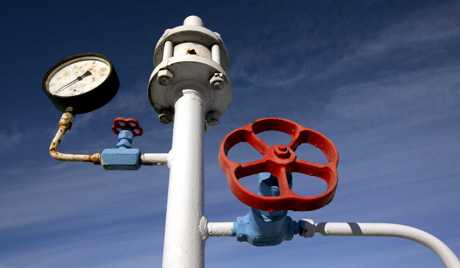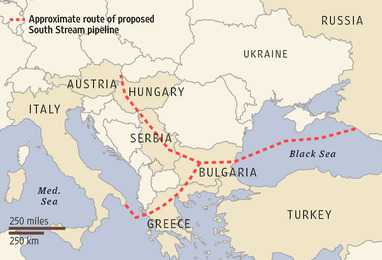
Photo: EPA
Russia and Turkey are ready to begin talks about an increase in Russian export gas supplies. For the time being, under discussion are additional 3 billion cubic metres of gas annually. However, experts are sure that the consumption of fuel in Turkey as well as the demand for Russian gas will grow in the country in the coming few years.
Turkey has limited reserves of natural gas. Today Turkey is spending billions of dollars on prospecting for new gas deposits in the south-east of the country and in the Black Sea. 17 new oil and gas deposits have already been discovered. Some experts say that there are big reserves of shale hydrocarbons in Turkey. In any case, Turkey can effectively handle only the natural gas it imports. In compliance with the Russian-Turkish contract, the Russian gas giant Gazprom supplies nearly 26 billion cubic metres of gas to Turkey annually. In the future Turkey would like to receive from 29 to 30 cubic metres of gas per year. Gas consumption in the country is growing. Russian fuel is transported to Turkey through the Western Corridor and the Blue Stream gas pipelines. If Turkey wants, their capacity could be increased, Head of the Analytical Research Department at the URALSIB Company Alexander Golovtsov says.
“Turkey’s population is growing. Therefore, gas consumption in the country will grow too. Hence, unless the global situation with Iran is settled and torrential gas flows start coming from it to Turkey, the demand for Russian gas will grow, and with the existing growth rates another 5 years will be needed to fill the Blue Stream gas pipeline with gas.”
Russia is not the only supplier of natural gas to Turkey, the partner of the consulting RusEnergy Company Mikhail Krutikhin says.
“Another stage of the gas project leading to Azerbaijan will be launched by 2018, and the volume of the pumped Azeri gas to Turkey will increase as well. Besides, Turkey plans to receive gas from Iraqi Kurdistan, in addition to the liquefied natural gas (LNG). Although Russia is Turkey’s very important partner, it is not its only partner.”
Thus, Turkey is trying to receive the maximum benefit from its geographic position – between the countries involved in gas extraction. Besides, Turkey holds a monopoly on the transit of natural gas because it has established its control over the Black Sea’s outlet to the Mediterranean Sea, Mikhail Krutikhin said.
“Turkey does not let large gas carriers to enter the Black Sea. Thus, the capacity of the Bosporus Strait and the Dardanelles hamper Ukraine’s plans to build a terminal for the import of liquefied natural gas.”
In fact, Russia and Turkey have similar views regarding gas issues. Russia’s Gazprom is seeking to diversify its export flows and to sell its gas to various countries. The Turkish market, which is more dynamic than the European market, remains more attractive. And as regards Turkey, it is trying to develop its own system of gas import, buying gas from numerous buyers – a little at a time, aiming to become dependent on nobody. But even with the existing arrangement, Russian gas pipelines remain the most effective mechanism.
via Turkey wants more Russian gas: Voice of Russia.


